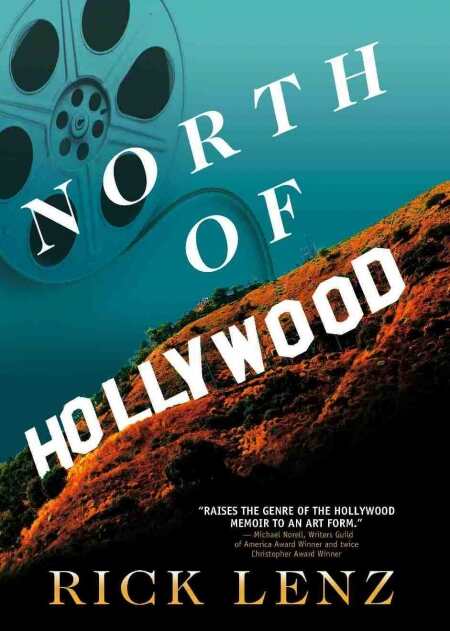
North of Hollywood
- 2012 INDIES Winner
- Bronze, Performing Arts & Music (Adult Nonfiction)
At ten years old, Rick Lenz witnessed a childhood prank go terribly wrong while at a Michigan lake. Lenz and his friend Dixie Thorpe had just changed into their swimsuits and were walking towards the dock when some older boys who appeared to be standing in shoulder deep water cajoled Thorpe into diving in.
“I felt something leaden in the pit of my stomach,” Lenz writes. “I ran out onto the dock yelling, ‘Dixie! Don’t!’ But by then he was sprinting full tilt toward the water. He threw himself off, head first, launching himself into an awkward jackknife dive. He seemed to hang in the air forever. He hung on in the hospital for a week before he died. I never saw him again. The boys had been standing on their knees.”
The incident sets the tone of North of Hollywood, Lenz’s memoir of his life as an almost famous Hollywood actor. Mostly known from his roles in Cactus Flower (1969) and The Shootist (1976) as well as a sprinkling of sitcom appearances, Lenz writes from an all too familiar place for most actors, but one rarely explored for the reader. Neither star nor nobody, Lenz’s story is about the struggle of surviving in Tinseltown long after he can no longer expect the easy roles that just need a pretty young thing to fill them.
Like an after-school special, North of Hollywood is less about the big name stars that intersect Lenz’s life—although they’re there, from John Wayne to Goldie Hawn—and more about the drama. In a life rich with celebrity encounters, struggles with alcohol, marital problems and marital bliss, and almost losing his daughter to drugs, Lenz has had to come to terms with a lot of drama. Unlike a television program, however, the reader doesn’t need to wait until the last scene to know if everything works out. An overwhelming sense of peace, the type gained through experience and reconciliation, pervades the novel from the very first few chapters.
Rather than telling his story in a linear fashion, Lenz takes great leaps forward and backwards through time, flits from moment to moment, and doesn’t always finish stories in the same breath that began them. A scattering of sitcom titles and movie references provide readers with enough chronological anchors to highlight the memoir’s kaleidoscopic form without breaking the rhythm of Lenz’s poetic prose. The effect is beautiful, as if the reader were experiencing Lenz’s life from the perspective of every camera that ever filmed him.
Reviewed by
Joseph Thompson
Disclosure: This article is not an endorsement, but a review. The publisher of this book provided free copies of the book and paid a small fee to have their book reviewed by a professional reviewer. Foreword Reviews and Clarion Reviews make no guarantee that the publisher will receive a positive review. Foreword Magazine, Inc. is disclosing this in accordance with the Federal Trade Commission’s 16 CFR, Part 255.
